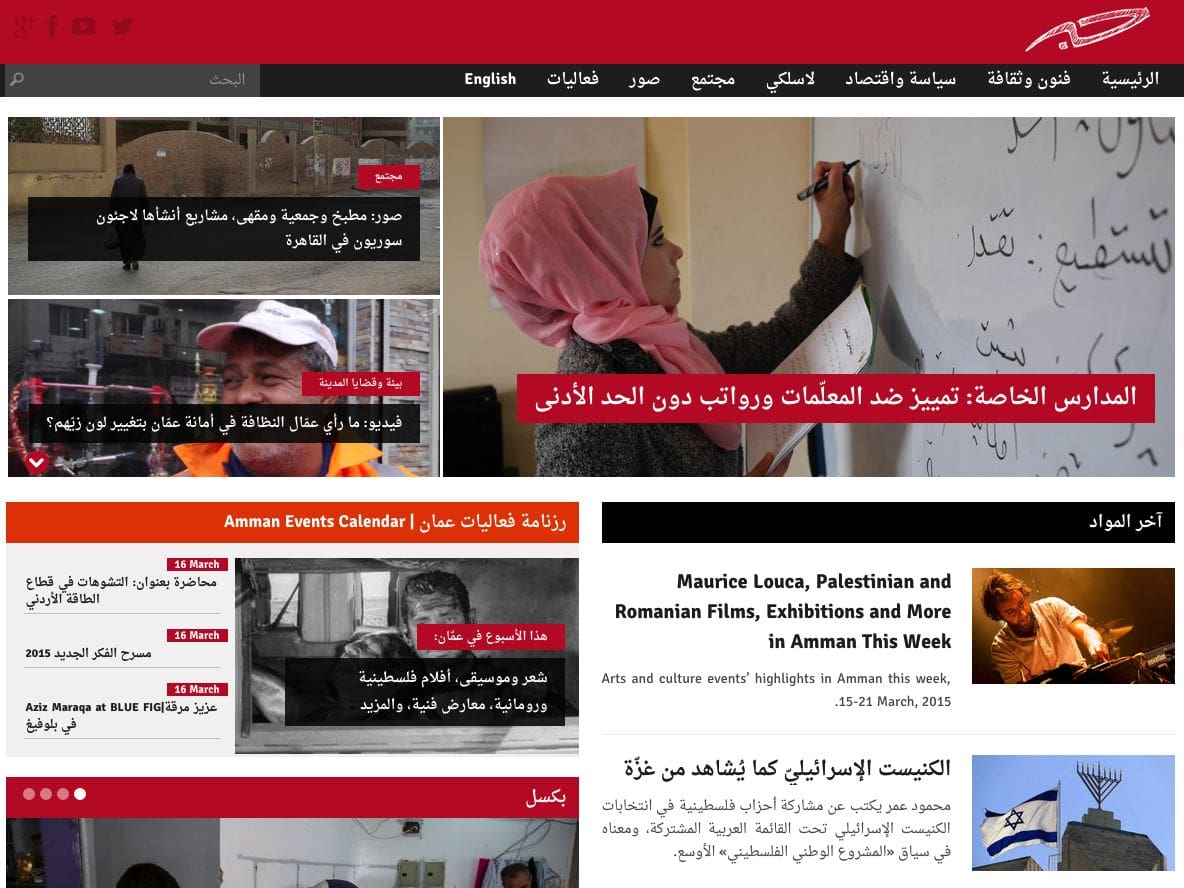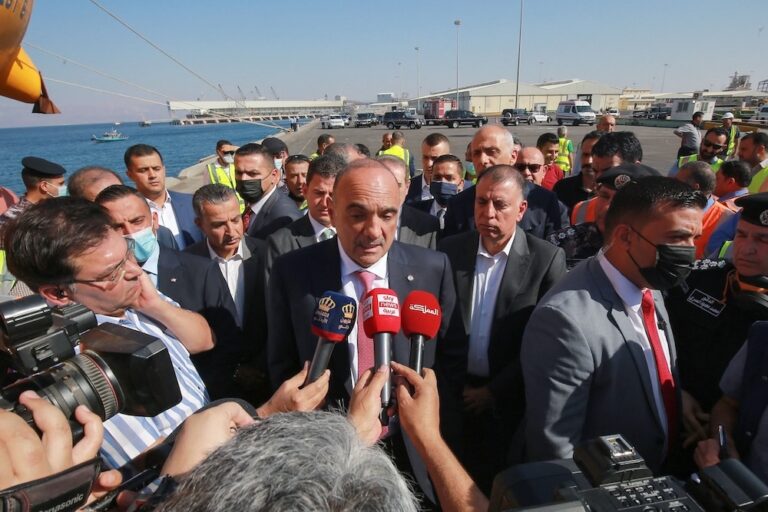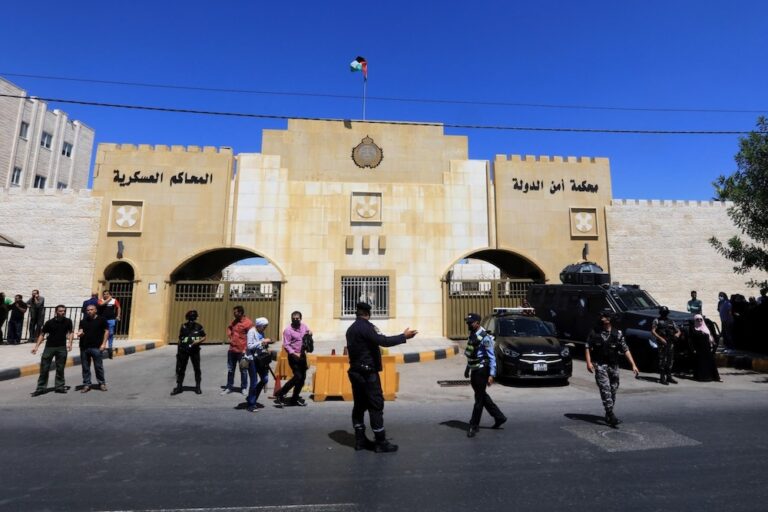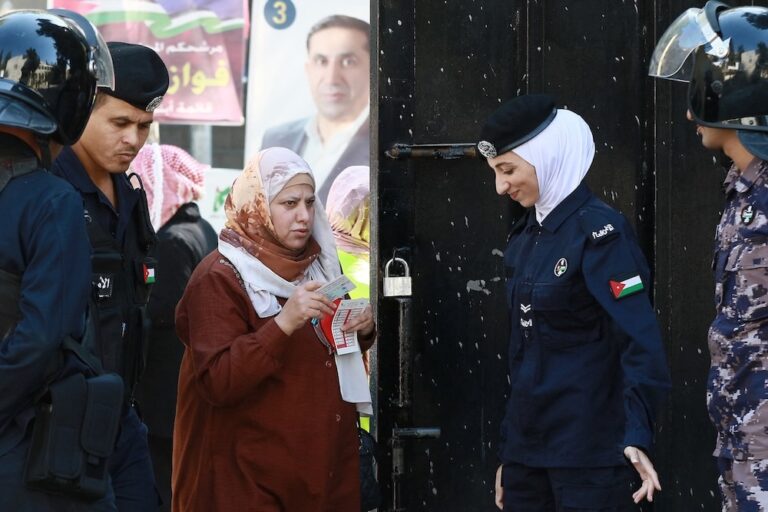Lina Ejeilat, editor of the 7iber.com news site, spoke to the International Press Institute about Jordan's Press and Publications Law and how it affects the future of 7iber.
This statement was originally published on freemedia.at on 12 March 2015.
Nearly two years have passed since Jordanian authorities blocked over 200 websites for failing to obtain a license in accordance with a then-recent amendment to the country’s Press and Publications Law.
The amendment requires online news sites to be licensed to operate as such and to have an editor affiliated with the Jordan Press Association, a professional syndicate founded in 1953 with the majority of its members working for state media. Notably, all editors of newly licensed sites are considered legally accountable not only for the journalistic content, but also for reader comments.
Some sites were later unblocked after being determined not to be news portals, and social media platforms were excluded altogether. News sites, however, continue to be subject to closure unless they accede to the licensing demands. Editors of these sites say the law has had a significant effect on Jordan’s media landscape.
7iber.com was among those to be shut down in June 2013. The news site tried relentlessly to circumvent the ban by switching domains, resulting in four consecutive closures of their online platform. In Dec. 2014, 7iber.com co-founder Lina Ejeilat said in an interview with the International Press Institute (IPI) that the site would eventually apply for a license, a step it took 12 days later, after being threatened with a lawsuit by the government.
IPI has unsuccessfully urged the Jordanian government to rescind the amendments on several occasions. In June 2013, one month after IPI’s World Congress in Amman, an IPI delegation met with Prime Minister Abdullah Ensour to try to reverse the blocking action. In May 2014, IPI carried out a press freedom mission to the country focused primarily on the licensing requirement.
IPI interviewed Lina Ejeilat three months after 7iber.com began operating with a license.
IPI: Why did you eventually license 7iber.com?
Lina Ejeilat: Ever since the [licensing] law was debated in Parliament, we took a very strong position against the idea of requiring online media to get a government license. We believe that not even print media should be required to get a government license with the kind of conditions that come with that license, because we think that the idea of getting permission to start a media platform is something that is a form of censorship.
We were never against registration and accountability. 7iber.com has been licensed since 2009 as a company with full transparency about who the team is, who the editorial staff is, for us to be held accountable for the content [we publish]. So we stood our ground for two years. We were relying on our alternative domain and trying to raise awareness about the problems with this law.
The problem is that pretty much all of the other news sites, after getting blocked by the government, decided to apply for a license, so there was nobody else actively fighting against the law. At the same time we found that, even [among] the general public there wasn’t any real push to change this law and clearly the law had become a reality and it was getting increasingly difficult for us to fight it on our own.
We kept up the fight, but our alternative domain was blocked in June 2014, and then again in August of that year, so it became clear to us that switching domains was not going to work. We were then taken to court for running an unlicensed operation. The penalty for that is a fine, and if [the action] is repeated, the fine gets bigger and bigger. In the end we found ourselves in a position where we had to make a very difficult choice: Do we want to dedicate all of our resources just to fighting the law and making a point, and holding on to our moral standards against it? We could do that, but a) it had proven to not be very effective and b) it was going to hinder us from our main mission, which is producing critical, high-quality, in-depth journalism for the whole region but primarily for a local audience inside Jordan. If that audience is unable to access our website, then all this content we are producing is not having the impact that it can potentially have.
I admit it, it was not an easy choice. So this is what brought us to the license – the repeated blocking and the court case, and basically being aware that they [the government] are persistently after us and that it is going to be increasingly difficult to insist on operating without being licensed.
IPI: Now that the main news sites have been licensed, does this legitimise the law?
L.E: In 2013 over 200 websites were blocked. Some of them decided to fight and they took it [their case] to the High Court of Justice, but the case was dismissed. When websites made the decision to get licensed it was understandable because they relied on traffic and advertising and the cost was too high to continue switching domains. Once all of the main websites got licensed it became clear that the law became a reality and that the government had absolutely no incentive to change the law.
The problem is that the political climate in the region in the past two years – but increasingly in the past year – has made it very easy for the government to get away with more censorship, more repression, more crackdown on freedom of expression, on press freedom. The Anti-Terrorism Law that was passed in Jordan in 2014 is also a serious threat to press freedom and freedom of expression. People are already in jail based on this law, they are already facing trials at the State Security Court for things they wrote on Facebook.
I mean, sometimes violations take place but there is a criminal court. There were two journalists that published inaccurate information on their website about the case of the [Jordanian] pilot [brutally executed by the Islamic State group] when the negotiations were taking place for the prisoner swap with the convicted member of the Islamic State group held in prison in Jordan. [It should be noted that] a) they were not the only ones publishing that content, but b) if the content was wrong and it violated the law [the authorities] could have just taken them to a regular court. Instead, the editor-in-chief and other editor were detained and later put in prison. They are now facing trial at the State Security Court based on the Anti-Terrorism Law.
Over the past year, the media in general is much more cautious and keeps repeating the official narrative, there are no critical voices. It is really worrying.
IPI: Has licensing hampered 7iber’s freedom of expression in any way?
L.E: Ever since 7iber was founded we’ve always believed that it is very important not to self-censor and we were always taking calculated risks. As long as you are publishing content that is factual, that is professional, that you can stand by and behind, then we publish and see what happens. Now that we are licensed, we actually made it more of a point not to self-censor and to preserve and maintain our editorial independence.
Actually, after the assassination of the Jordanian pilot and when Jordan intensified the air strikes, it seemed that because of the general climate it was very difficult to be critical of the air strikes and Jordan’s participation in the [Arab] Coalition. We actually published critical content but the writer was severely attacked in the comments but there were no repercussions by the government.
Generally, I would say, licensing has not hampered our editorial line or our freedom of expression. But again, it is important to acknowledge that with the current laws and in the current climate, there are so many articles that can be used against us [journalists]. The wordings and definitions in Jordanian law, even in the Anti-Terrorism Law, have been always elastic and vague enough that they can be used on anything.
IPI: What will be your next step?
L.E: Since getting 7iber.com back, we are working on growing the site, producing more content that is again, critical, tackling important social issues and religious taboos, talking about issues that need to be discussed, stories that need to be told, really focusing on the content. But we are also producing a monthly in-depth report about a media related issue. So we’ve done a big report about the impact of licensing on the online media landscape, and then we organised debates and activities. This is part of our effort to really keep the public debate going in this kind of political climate, when everybody is worried about issues of security and instability. It is important not to lose sight of other important issues related to democratic values and press freedom, essential for a long term social stability.
IPI: What is it that the international community can do to improve the online press freedom situation in the country?
L.E: It still very important to keep the pressure on, to at least let the Jordanian government know that you [the government] cannot be comfortable or get away easily if you completely disregard freedom of expression. The regime in Jordan is very good at PR to the West. So there is one narrative for Western media, but then actions are different in Jordan. I think this is very alarming and also it’s alarming because,unfortunately, people seems to think that this is justified, that there is actually a dichotomy between freedoms and security.
I think it is important to counter this narrative from within Jordan, but it also important to counter it in the international community. It important that the international community keep raising these red flags and saying this is wrong, Because you cannot fight terrorism only by being heavy-handed and with military force – it is an intellectual battle, and if you want to fight against it, freedom of the press is one of the most important pillars to counter extremism.



